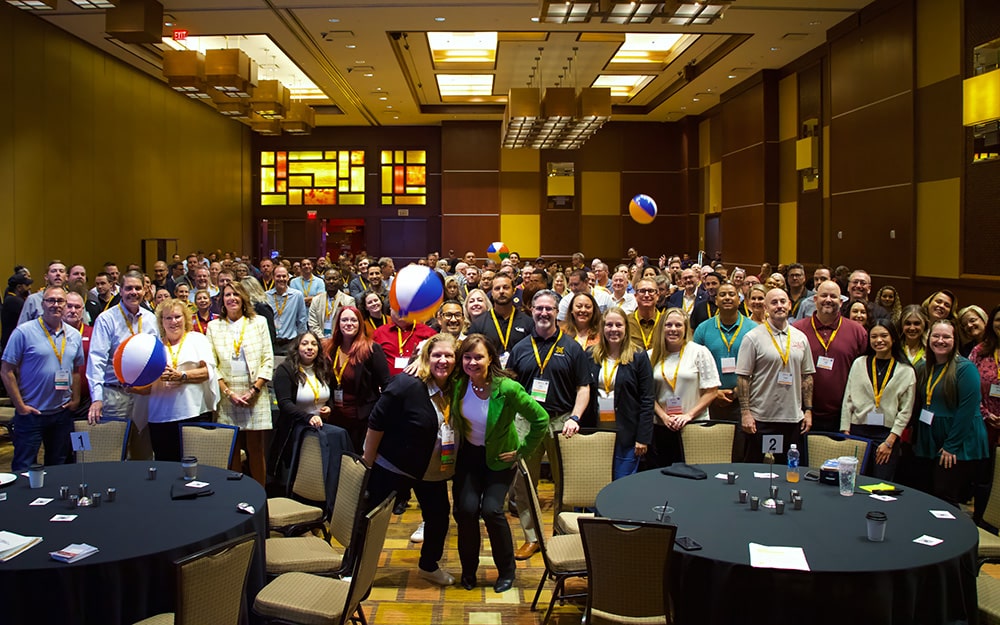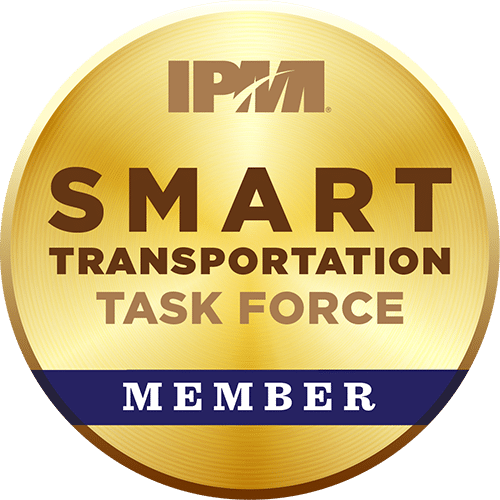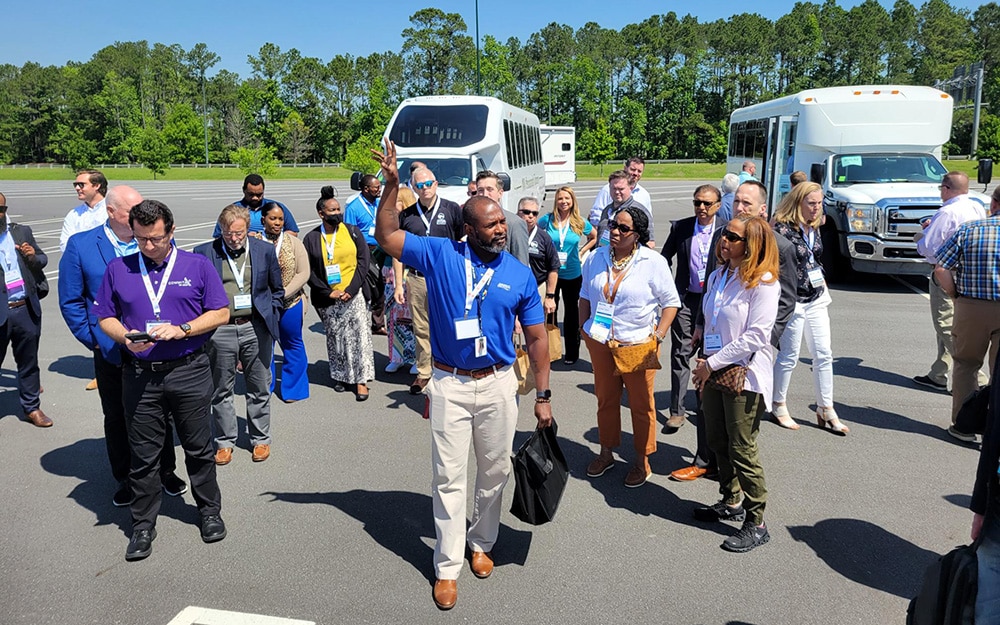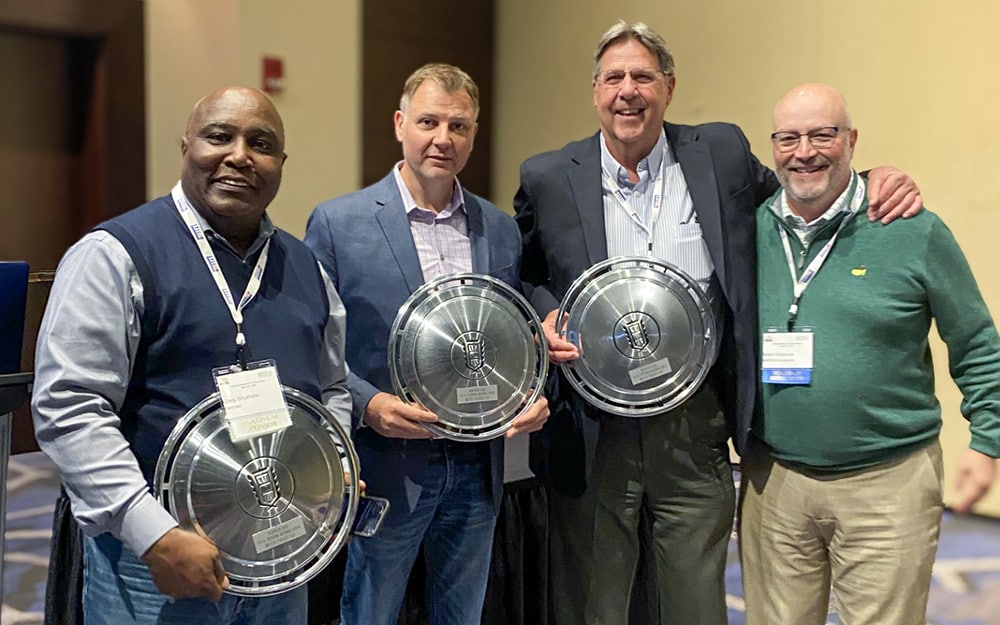
VIVA la SWPTA
The Southwest Parking and Transportation Association (SWPTA) has an amazing
Share:
Share:
Home » July 2023 » Columns 2307 » State & Regional Spotlight
Mentorship programs are a valuable tool for professional development. They can help mentees learn from experienced mentors, gain access to new networks, and develop their skills and knowledge. Mentors benefit by increasing their credibility, allowing them to engage others and hone their leadership skills. Mentorship programs can also help mentors give back to their communities and make a positive impact on the lives of others.
There are many different types of mentorship programs, but they all share some common goals. Mentorship programs typically aim to help mentees by:
Mentorship programs can be found in various settings, including schools, businesses, nonprofits, and government agencies. They can be formal or informal, and they can be one-on-one, or group based.
Mentorship programs have been shown to be effective in a variety of settings. They can help mentees improve their job performance or advance their careers. Mentorship programs can also help mentees develop their leadership skills, build self-confidence, and make a positive impact on their communities. Organizations that support mentor programs improve succession planning and organizational retention.
In late 2021, the California Mobility and Parking Association (CMPA) board of directors approved the launch of a pilot project to test the viability of a mentor program for members of its association. Within a year, the pilot had been successfully tested, and the board approved permanently adding a mentorship program to complement its suite of professional development offerings. This new program fits squarely and uniquely within CMPA’s mission to advance the public parking and mobility profession in California by providing a forum for its members to interact, exchange ideas and information, and provide technical and legislative support. We are pleased to share CMPA’s process to develop the pilot and permanent program, objectives, key features, evaluation, and lessons learned.
CMPA elected to pilot the program to test the offering’s marketability, work out process kinks, and determine how to manage a more permanent offering. The program was launched publicly through CMPA social media, an email campaign, and in-person at its annual conference. One month later, an online application process was launched which closed roughly two months later.
The application process proved critical to determining the best mentor/mentee pairs. CMPA used an online survey tool that, in addition to basic contact information, asked mentee applicants about their backgrounds and about career goals, the challenges and barriers they face, and what they hoped to gain through participation. Mentees were asked specifically to identify where they’d like to gain knowledge in the areas of leadership, management, career development and promotion, work/life balance, career change, networking, diversity, or others. Mentors were also asked about their backgrounds and special areas of expertise. Mentors and mentees listed their hobbies and interests.
A live virtual training session was held in the middle of the application period that:
Taking this approach, CMPA received 22 applications and preliminarily set pairs. Some potential obstacles were identified, and the pairs were reset again. This process continued over until each pair had sufficient parity between mutual professional paths, goals, interests, and cohesive communication styles.
Within two weeks of the application window’s closure, mentor/mentee pairs were selected and announced. Pairs were instructed to meet at least monthly and to complete a monthly survey provided by CMPA.
The initial ten pairings dwindled to nine by the end of the program, an expected outcome as folks move into different roles or industries. Meetings commenced in April and concluded in September, completing the six-month pilot.
A key initial decision was where and how the program would be best managed within the CMPA organization. The program could run independently or as part of one of CMPA’s standing committees, such as Professional Development or Membership. And if it were placed within a committee, would the committee chair lead the effort or a committee member? Ultimately, the decision was made to place the program in the Professional Development Committee and appoint a person to serve as program lead focusing on daily management, mentor and mentee engagement, and liaison to the board. This provided focus, accountability, and support in the form of the entire Professional Development Committee and facilitated collaboration between the mentor program and other professional development activities.
Program participants were surveyed monthly to ensure that meetings between mentors and mentees were happening at least weekly and to gauge sentiment throughout the pilot. An end-of-program survey was also conducted asking participants how often they’d met, if they thought the six-month timeframe was too long, too short, or just right, what else they might change, and if they’d participate again. Most participants thought six months was about right, 80% met four or more times (out of a minimum of six required times), and every respondent said they would participate again.
All participants were invited to a culmination celebration breakfast at the 2022 CMPA conference. There were two goals for this breakfast – to determine if this program was successful by soliciting feedback in an open discourse and celebrating the folks who had lent their time to a budding program. The celebration breakfast and commemorative giveaway to inaugural program participants were the only incurred costs for the pilot of approximately $4,000.
CMPA identified the following lessons learned for its pilot Mentor program.
CMPA successfully undertook a pilot approach to test the viability of its mentor program and, in the process, added yet another member benefit to its suite of professional development and training offerings. Though the number of program participants is relatively small compared to the entire CMPA membership, the program impacts far outweigh the costs in both time and financial resources. The program is fully aligned with CMPA’s mission, it has been shaped by the organization’s leadership and program participants, and it fills an important need by providing an industry-specific way of developing new leaders, creating life-long bonds between colleagues, and providing meaningful ways for industry veterans to share their wisdom, expertise, and guidance in a constructive organized way.
Film director Steven Spielberg is credited with saying, “The delicate balance of mentoring someone is not creating them in your own image but giving them the opportunity to create themselves.” With the spirit of this wisdom in mind, CMPA is offering a way for its members to improve themselves, reach their potential, and be more fulfilled at work and at home. ◆
The program will last approximately 6 months following the pairing of mentors and mentees. The program will begin in March and conclude in October.
We expect mentors and mentees to meet at least monthly though you should feel free to meet more frequently.
Absolutely. We’ll take applications and find the best overall fit between mentors and mentees.
No. Applications will be taken for both mentors and mentees and we’ll find the best overall fit between mentors and mentees. This may mean some applicants are not successfully matched, depending on interest and background.
There will be no cost to participate. This is a member benefit provided by CMPA.
Yes, the program is only open to current CMPA members.
Sometimes mentors and mentees are not a good fit even after the application and screening process. If this happens we ask that you communicate with the CMPA mentor program lead to discuss the issue and possible solutions.
There are four.

Casey Jones, CAPP, PMP, is Senior Director of Customer Success at FLASH, a member of the IPMI Board of Directors, and Co-Chair of IPMI’s Smart Transportation Task Force.
Madison Huemmer is Director—Strategic Supplier Relations for OMNIA Partners Company and the CMPA Mentor Program Lead.

The Southwest Parking and Transportation Association (SWPTA) has an amazing

Paving the Way for Transportation Excellence

State & Regional Spotlight Pennsylvania Parking Association stock.adobe.com / captainvector
Parking & Mobility is IPMI’s flagship publication, covering the news, trends, analysis, technologies, and people of the parking and mobility industry, and how it affects and influences communities around the world.
| Cookie | Duration | Description |
|---|---|---|
| cookielawinfo-checkbox-advertisement | 1 year | Set by the GDPR Cookie Consent plugin, this cookie is used to record the user consent for the cookies in the "Advertisement" category . |
| cookielawinfo-checkbox-analytics | 11 months | This cookie is set by GDPR Cookie Consent plugin. The cookie is used to store the user consent for the cookies in the category "Analytics". |
| cookielawinfo-checkbox-functional | 11 months | The cookie is set by GDPR cookie consent to record the user consent for the cookies in the category "Functional". |
| cookielawinfo-checkbox-necessary | 11 months | This cookie is set by GDPR Cookie Consent plugin. The cookies is used to store the user consent for the cookies in the category "Necessary". |
| cookielawinfo-checkbox-others | 11 months | This cookie is set by GDPR Cookie Consent plugin. The cookie is used to store the user consent for the cookies in the category "Other. |
| cookielawinfo-checkbox-performance | 11 months | This cookie is set by GDPR Cookie Consent plugin. The cookie is used to store the user consent for the cookies in the category "Performance". |
| CookieLawInfoConsent | 1 year | Records the default button state of the corresponding category & the status of CCPA. It works only in coordination with the primary cookie. |
| elementor | never | This cookie is used by the website's WordPress theme. It allows the website owner to implement or change the website's content in real-time. |
| viewed_cookie_policy | 11 months | The cookie is set by the GDPR Cookie Consent plugin and is used to store whether or not user has consented to the use of cookies. It does not store any personal data. |
| Cookie | Duration | Description |
|---|---|---|
| _ga | 2 years | The _ga cookie, installed by Google Analytics, calculates visitor, session and campaign data and also keeps track of site usage for the site's analytics report. The cookie stores information anonymously and assigns a randomly generated number to recognize unique visitors. |
| _ga_02PMHW8YWC | 2 years | This cookie is installed by Google Analytics. |
| _ga_LC0QJJHM3J | 2 years | This cookie is installed by Google Analytics. |
| _ga_V9KYTSBYT2 | 2 years | This cookie is installed by Google Analytics. |
| iutk | 5 months 27 days | This cookie is used by Issuu analytic system to gather information regarding visitor activity on Issuu products. |
| Cookie | Duration | Description |
|---|---|---|
| mc | 1 year 1 month | Quantserve sets the mc cookie to anonymously track user behaviour on the website. |
| Cookie | Duration | Description |
|---|---|---|
| ultp_view_1052 | 1 day | No description |
| ultp_view_1058 | 1 day | No description |
| ultp_view_1060 | 1 day | No description |
| ultp_view_1064 | 1 day | No description |
| ultp_view_1068 | 1 day | No description |
| ultp_view_1070 | 1 day | No description |
| ultp_view_1072 | 1 day | No description |
| ultp_view_1078 | 1 day | No description |
| ultp_view_1082 | 1 day | No description |
| ultp_view_1088 | 1 day | No description |
| ultp_view_1100 | 1 day | No description |
| ultp_view_1103 | 1 day | No description |
| ultp_view_1114 | 1 day | No description |
| ultp_view_1118 | 1 day | No description |
| ultp_view_1122 | 1 day | No description |
| ultp_view_1125 | 1 day | No description |
| ultp_view_1130 | 1 day | No description |
| ultp_view_1132 | 1 day | No description |
| ultp_view_1135 | 1 day | No description |
| ultp_view_1541 | 1 day | No description |
| ultp_view_1554 | 1 day | No description |
| ultp_view_1557 | 1 day | No description |
| ultp_view_1560 | 1 day | No description |
| ultp_view_1563 | 1 day | No description |
| ultp_view_1568 | 1 day | No description |
| ultp_view_1572 | 1 day | No description |
| ultp_view_1576 | 1 day | No description |
| ultp_view_1580 | 1 day | No description |
| ultp_view_2305 | 1 day | No description |
| ultp_view_2321 | 1 day | No description |
| ultp_view_2338 | 1 day | No description |
| ultp_view_2342 | 1 day | No description |
| ultp_view_259 | 1 day | No description |
| ultp_view_270 | 1 day | No description |
| ultp_view_275 | 1 day | No description |
| ultp_view_286 | 1 day | No description |
| ultp_view_3074 | 1 day | No description |
| ultp_view_3115 | 1 day | No description |
| ultp_view_3334 | 1 day | No description |
| ultp_view_3336 | 1 day | No description |
| ultp_view_3338 | 1 day | No description |
| ultp_view_3340 | 1 day | No description |
| ultp_view_3346 | 1 day | No description |
| ultp_view_3354 | 1 day | No description |
| ultp_view_3361 | 1 day | No description |
| ultp_view_3367 | 1 day | No description |
| ultp_view_365 | 1 day | No description |
| ultp_view_367 | 1 day | No description |
| ultp_view_38 | 1 day | No description |
| ultp_view_3846 | 1 day | No description |